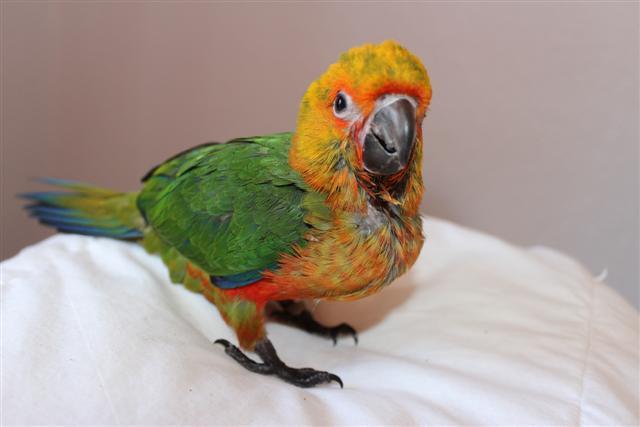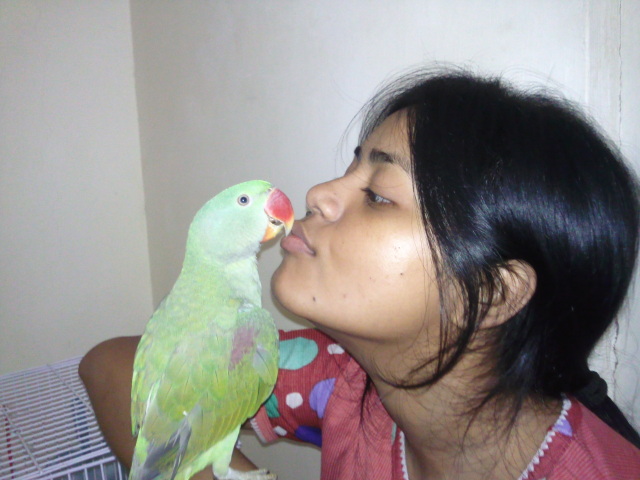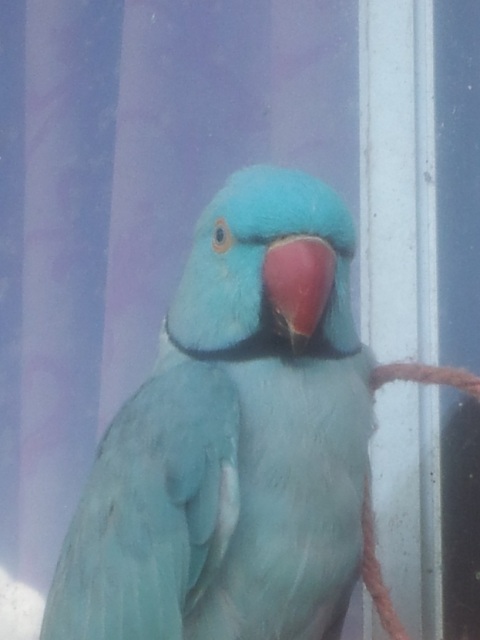Questionok i don't know if i have mentioned misty's (my cockatiel) egg laying problems. so far this year alone she has to be close to 24 or 25 eggs! she layed two straight clutches of nine eggs earlier in the year. I left them in there untill she abandoned them and all that. Then a couple of weeks ago she started laying again I figured I didn't have anything to lose and she didn't seem as intrested in them as usual so as soon as she layed one I took it out she layed three then stopped. Today I have her out of her cage while I'm doing school everythings cool I put her back in while i go grab something to eat come back and out of the blue she's layed an egg! and she is super protective of it like never before.This time though she didn't have any of the pre-egglaying symptoms she usually does. I've tried everything I've read -keeping her cage dark for long periods, then keeping it well lit, removing all mirrors from her cage, rearanging it frequently ( i just did this not 4 days ago), plenty of time outside the cage the bird has more than 20 toys i keep frequently rotated anytime she start whistling through her rear end on her perch i spray her with water and move the perch. I just don't know what to do! I've even considered giving her to this place i found on the internet that has an open aviary for just cockatiels where they are free to nest as they please and if this is the best thing for her i will but i really do love her i just don't want to worry about her getting egg bound all the time! it doesn't seem to matter what the season is. any advice is appreciated thanks i know this is kinda long and i'm really tired so my grammer is horrible
this is from a post i did on a bird forum so thats why the format is kinda weird
AnswerLet's take this a step at a time ok?
1st - it's important to balance a bird's light/dark. We provide nighttime cages for ours with 12 hours of subdued light and quiet time every single day. We don't vary our schedule by more than about 15 minutes.
So, if you're typically up at 7 a.m., put your 'tiel to bed at 7 p.m. and make sure to wake her with happy greetings by 7 a.m..
Expect lots of whistling and chortling and encourage it. This is how they greet their flock (that's you) and it's not worth fighting mother nature.
Ideally, try a separate cage and room to put her in (we put our in-house birds in nighttime cages that are in bedrooms - just a nightlight on, no noise and most of the cage is covered, except for half of the front door so they can see out which is important to them). You can just cover her if that's what works for you. Use an opaque/dark cover, but leave 1/2 to 1/4 of the front door unblocked (lengthwise) and noise levels should go very low, as if you were respecting someone asleep in the room.
Removal of mirrors is a good idea and rearranging is fine too, but the next time she lays, as long as the egg isn't damaged, leave it there. This will usually discourage more egg laying for about 3 weeks or more. If the egg is damaged, replace it with an egg you can get from craft stores (untreated wooden ones or marble eggs about the same size; some birds have been known to accept actual marbles if big enough ).
It would be best to not spray her unless it's for a pleasurable 'misting' (bath). 'Tiels can develop fear of water that can cripple them for life and make hygiene very difficult. It also doesn't work to stop egg laying.
Finally, make sure you supplement her food with fresh cuttlebone and mineral block in her cage, a pelleted diet is highly recommended with occassional seed (no sunflower) and daily fresh greens like peas, kale, broccoli flowers and greens, beans (all kinds), bits of cooked chicken (with bones), cooked eggs (include some of the shell), etc..
No touching or petting on her back at hip or below hip area (about mid back) which she may find triggers egg laying response to a perceived mating.
See us and more about care for your baby (and lots more about food too) www.4AnimalCare.org
I hope this helps clear up some of the misinformation that's out there, especially about keeping the bird in lengthy dark periods - which may just create behavior problems.

 Indian Ringneck Health Issue
QuestionI have an Indian Ringneck who had been neglecte
Indian Ringneck Health Issue
QuestionI have an Indian Ringneck who had been neglecte
 Jenday Conure Weaning?
Question
Castor the Conure
Hi
I have a 9 week o
Jenday Conure Weaning?
Question
Castor the Conure
Hi
I have a 9 week o
 can i give my parrot chole(chana) called in hindi
Question
my little chaddi alexa
dear sir,
can give chan
can i give my parrot chole(chana) called in hindi
Question
my little chaddi alexa
dear sir,
can give chan
 ID Birds
Question
Panama Birds
My uncle served in Panama in 1941
ID Birds
Question
Panama Birds
My uncle served in Panama in 1941
 RE: Indian Ringneck probems
Question
Indy our Ringneck
Thank you for your he
RE: Indian Ringneck probems
Question
Indy our Ringneck
Thank you for your he